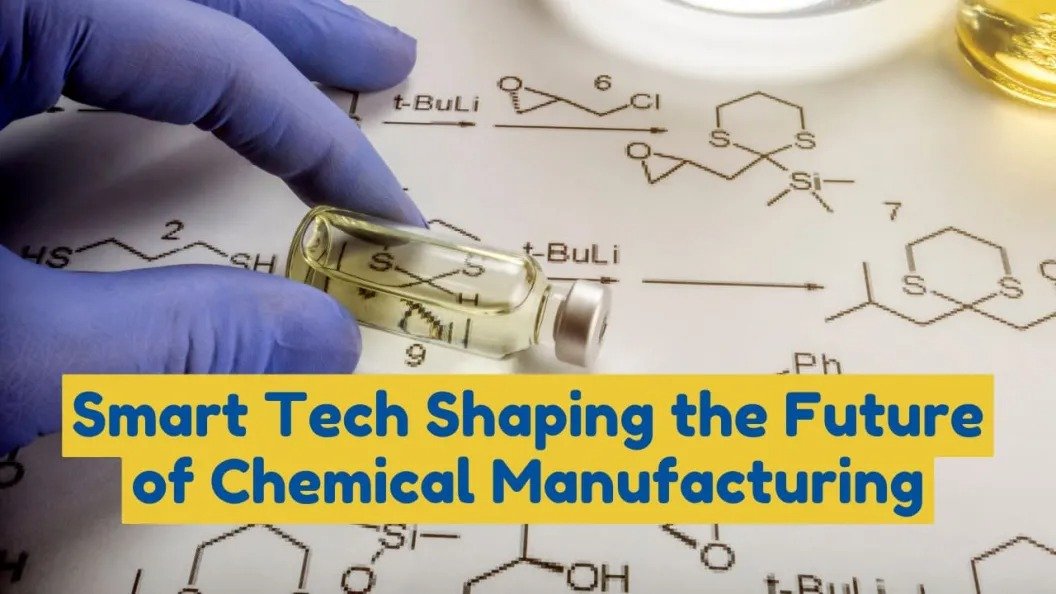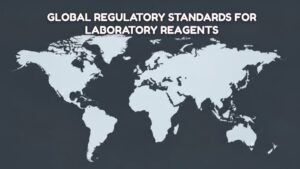The chemical manufacturing industry is one of the largest and most influential sectors in the world. It powers essential industries like pharmaceuticals, agriculture, construction, energy, and consumer goods. However, with rising demand, stringent environmental regulations, and intensifying global competition, chemical manufacturers face significant challenges. The question is, how can they remain competitive, sustainable, and efficient in this rapidly evolving landscape?
The answer lies in smart technology. By adopting digital transformation tools such as Artificial Intelligence (AI), automation, robotics, data analytics, and the Industrial Internet of Things, chemical companies are reimagining the way they design, produce, and deliver chemicals. This integration of technology is fueling what many call the next era of chemical manufacturing.
In this blog, we will explore how smart technology is transforming the chemical industry, its applications, benefits, and the opportunities it presents for the future.
1. The Shift Towards Smart Manufacturing in Chemicals
Traditionally, chemical plants relied on labor-intensive processes and decades-old equipment. While effective, these methods lacked efficiency, transparency, and adaptability. Today, the industry is undergoing a digital revolution.
Smart manufacturing combines advanced technology with chemical processes, enabling:
- Real-time monitoring of operations
- Predictive maintenance of equipment
- Automated quality checks
- Greater safety and compliance with environmental standards
This shift is not just about efficiency; it’s about sustainability, innovation, and global competitiveness.
2. Artificial Intelligence: Driving Data-Backed Decisions
One of the biggest changes in chemical manufacturing is the use of Artificial Intelligence (AI). Chemical plants generate massive amounts of data every day, including temperature logs, pressure readings, energy consumption, and production rates.
AI tools can:
- Analyze data to detect patterns and anomalies
- Predict potential equipment failures before they happen
- Optimize reaction conditions for better yields
- Suggest alternative raw materials to reduce costs
For example, AI-driven algorithms can help in reducing waste during chemical synthesis, leading to cost savings and environmental benefits.
3. The Role of IIoT and Automation
The Industrial Internet of Things (IIoT) is another game-changer. By connecting machines, sensors, and devices to a centralized system, chemical manufacturers can monitor every aspect of their operations.
Applications of IIoT in chemical plants include:
- Tracking energy consumption in real-time
- Monitoring emissions for sustainability compliance
- Automating batch processes with minimal human intervention
- Improving worker safety through connected sensors and alarms
Automation, when combined with IIoT, ensures 24/7 efficiency while reducing risks of human error.
4. Predictive Maintenance and Reduced Downtime
Unplanned downtime is one of the biggest challenges in chemical plants, often leading to production delays and financial losses. Smart technology, especially predictive maintenance tools, uses sensors and AI to monitor equipment health.
Instead of waiting for machinery to break down, predictive maintenance allows companies to:
- Replace parts before they fail
- Schedule repairs during non-peak hours
- Reduce maintenance costs significantly
This not only extends the life of expensive equipment but also ensures consistent productivity.
5. Enhancing Safety Through Digital Solutions
Chemical manufacturing involves handling hazardous materials and processes, making safety a top priority. Smart technology improves safety by:
- Using AI-driven risk assessment models
- Employing smart wearables to track worker health and exposure levels
- Detecting leaks or spills in real-time through sensors
- Automating shutdown systems in emergencies
By reducing human exposure to dangerous chemicals, smart manufacturing minimizes accidents while complying with strict regulatory frameworks.
6. Sustainability and Green Chemistry
With climate change concerns and stricter environmental laws, sustainability has become a key driver in the chemical sector. Smart technology is enabling green chemistry practices by:
- Optimizing energy consumption during reactions
- Reducing waste and emissions through AI-based process control
- Supporting the use of renewable feedstocks
- Tracking carbon footprints across the supply chain
For instance, AI models can identify the most energy-efficient synthesis routes, leading to lower greenhouse gas emissions.
7. Smart Supply Chain Management
Chemical manufacturing doesn’t end at production; the supply chain plays a critical role. Smart technology enables chemical companies to build resilient supply chains by:
- Predicting demand using AI and machine learning
- Tracking shipments in real-time with IoT-enabled logistics
- Managing inventory levels efficiently
- Mitigating risks of shortages or delays
This ensures customers receive high-quality chemicals on time and at competitive prices, strengthening trust and reliability.
8. The Role of Robotics in Chemical Manufacturing
Robotics is revolutionizing many industries, and chemicals are no exception. Robots are now being used for:
- Handling toxic or dangerous substances
- Performing repetitive tasks like mixing and packaging
- Conducting laboratory experiments with high precision
- Assisting in cleaning and maintenance
This reduces workplace hazards while improving accuracy and efficiency in production.
9. Future Opportunities for Smart Chemical Manufacturing
The adoption of smart technology is still in its early stages in the chemical sector. However, the potential is immense. Future opportunities include:
- Digital Twins: Creating virtual replicas of chemical plants to simulate operations and predict outcomes.
- Blockchain: Ensuring transparency and traceability in chemical supply chains.
- Augmented Reality (AR): Training workers and supporting remote troubleshooting.
- Cloud Computing: Enhancing collaboration across global chemical facilities.
These innovations will make the industry more competitive, sustainable, and future-ready.
10. Challenges to Overcome
While the benefits are clear, challenges still exist:
- High initial investment in smart technologies
- Need for a skilled workforce to handle advanced systems
- Cybersecurity risks associated with digital transformation
- Integration with legacy systems in older plants
Addressing these challenges requires strategic planning, partnerships, and government support to ensure smooth adoption.
Conclusion
The chemical manufacturing industry is standing at the edge of a major transformation. By adopting smart technologies like AI, IIoT, automation, robotics, and data analytics, companies can not only improve efficiency but also ensure sustainability, safety, and resilience.
As the world demands faster innovation, lower costs, and greener solutions, smart technology is becoming the backbone of next-generation chemical manufacturing. Companies that embrace this change today will lead the industry tomorrow.








